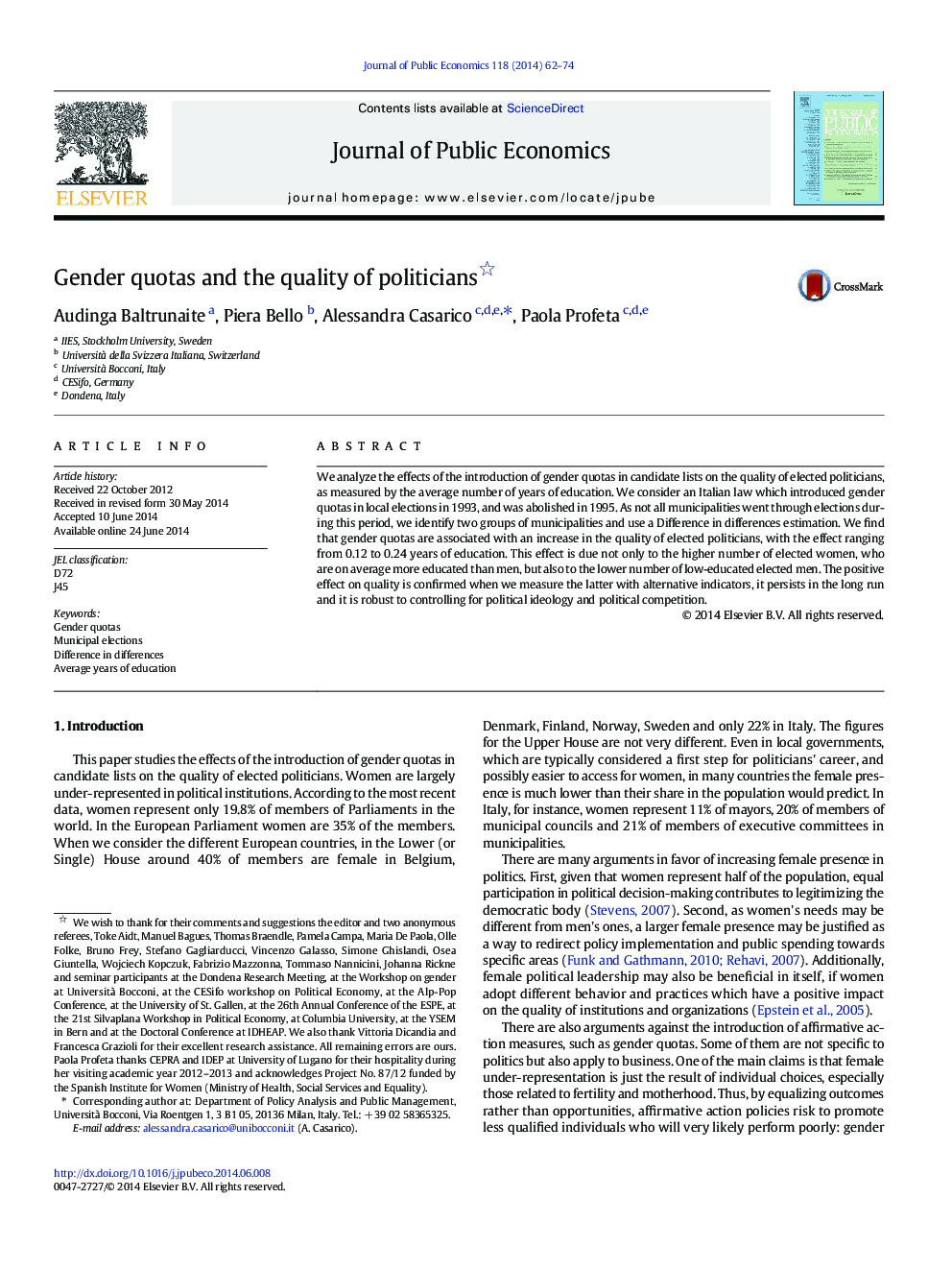| Article ID | Journal | Published Year | Pages | File Type |
|---|---|---|---|---|
| 7370218 | Journal of Public Economics | 2014 | 13 Pages |
Abstract
We analyze the effects of the introduction of gender quotas in candidate lists on the quality of elected politicians, as measured by the average number of years of education. We consider an Italian law which introduced gender quotas in local elections in 1993, and was abolished in 1995. As not all municipalities went through elections during this period, we identify two groups of municipalities and use a Difference in differences estimation. We find that gender quotas are associated with an increase in the quality of elected politicians, with the effect ranging from 0.12 to 0.24Â years of education. This effect is due not only to the higher number of elected women, who are on average more educated than men, but also to the lower number of low-educated elected men. The positive effect on quality is confirmed when we measure the latter with alternative indicators, it persists in the long run and it is robust to controlling for political ideology and political competition.
Related Topics
Social Sciences and Humanities
Economics, Econometrics and Finance
Economics and Econometrics
Authors
Audinga Baltrunaite, Piera Bello, Alessandra Casarico, Paola Profeta,
